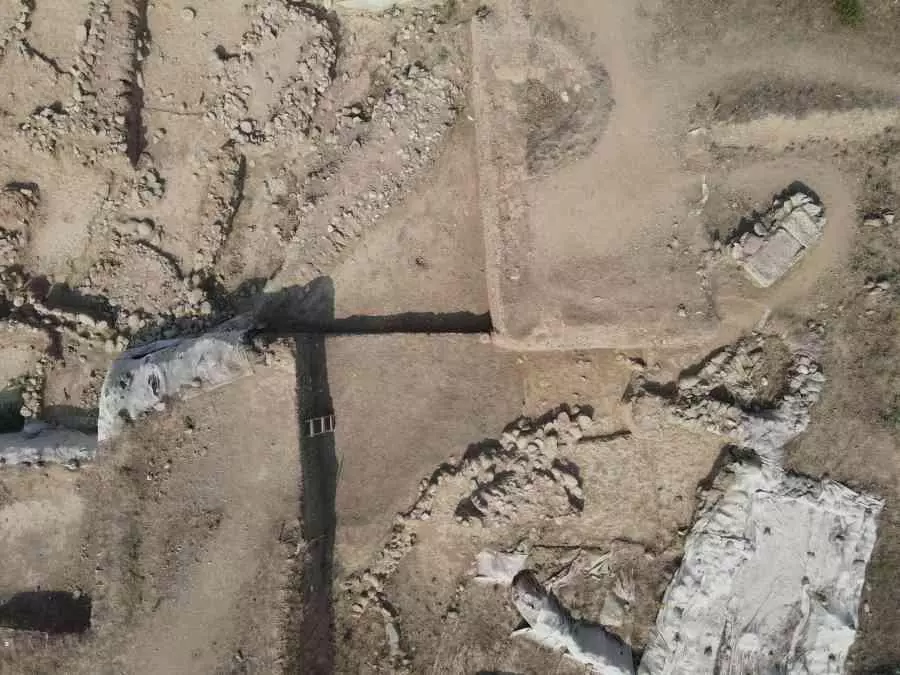
One of the oldest water channels dating back to 8,200 years ago was discovered in Yeşilova Mound
Archaeologists have discovered one of the oldest water channels dating back to 8,200 years ago at Yeşilova Mound, located in the western Turkish province of İzmir.
During the excavations, it was revealed that the earliest inhabitants of Yeşilova Mound directed the stream by hand and brought water to their homes.
Speaking to the local media, excavation director Assoc. Prof. Dr. Zafer Derin stated that during this year’s excavations, teams were specifically trying to understand how the ancient civilizations in the region utilized the landscape to their advantage.
“We observed a water channel, 6.5 meters wide, running through the heart of the settlement. It was lined with stones on both sides, built up like an earthen dam. It was used about 8,200 years ago, for four generations. In fact, even when this channel gradually filled up over time, water continued to flow through the same area using funnels, even during the Roman period.”
📣 Our WhatsApp channel is now LIVE! Stay up-to-date with the latest news and updates, just click here to follow us on WhatsApp and never miss a thing!!
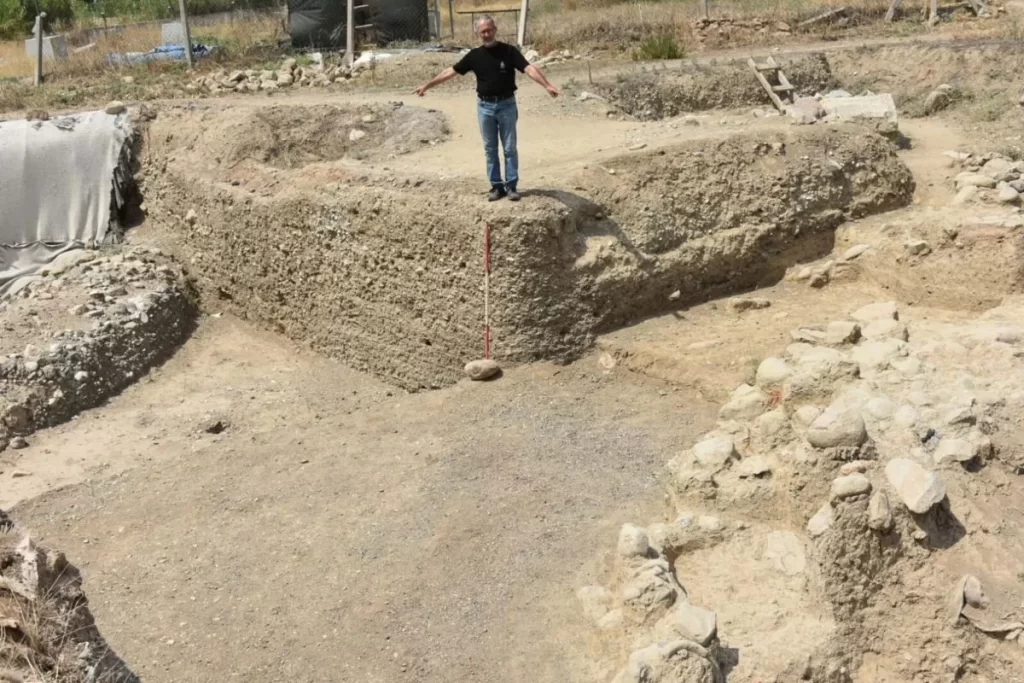
Derin emphasized that the ancient settlement’s water channel was constructed on both sides for protection. He pointed out that due to this construction, the settlement was not affected by floods.
“We’ve estimated its length to be around 220 meters. We’ve only been able to excavate a small portion of it as the channel is densely filled with gravel stones,” he said.
During the excavation season of the previous year, it was determined that the first inhabitants of the region consumed seafood, especially mussels. In the city consisting of nine villages, previous excavations have revealed a multitude of remnants dating back thousands of years, such as sea bream, poisonous pufferfish, sea urchin, oyster, and mussels.
The excavation works at Yeşilova and Yassıtepe mounds are being conducted under the coordination of the Ministry of Culture and Tourism, as well as the Izmir and Bornova municipalities, in collaboration with Ege University.
Yeşilova Mound is an archaeological mound located in the province of İzmir, Turkey. The mound is situated in the southeastern part of the Bornova district. Archaeological excavations have revealed that the mound has been inhabited since around the 6th millennium BCE. Excavations have been carried out with the aim of uncovering artifacts and remnants from various periods of this settlement.
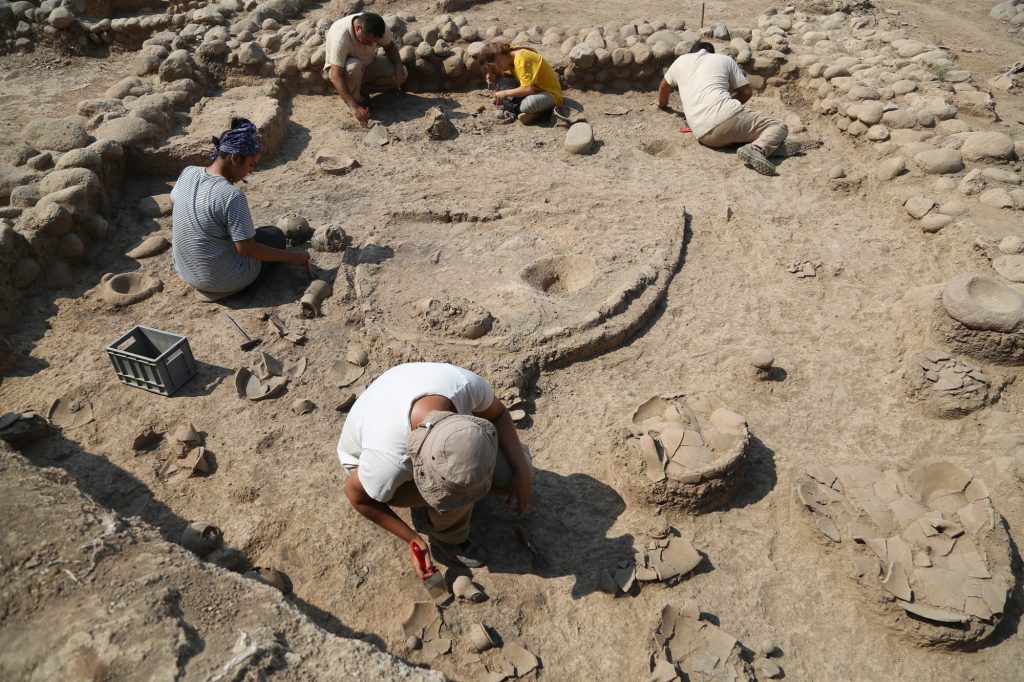
The excavations at Yeşilova Mound are intended to shed light on the prehistoric periods and ancient civilizations of the region. The discoveries made during these excavations help us understand the evolution of settlements and lifestyles. Structures like the water channel found in the mound provide valuable insights into the water management and agricultural practices of that era.
You may also like
- A 1700-year-old statue of Pan unearthed during the excavations at Polyeuktos in İstanbul
- The granary was found in the ancient city of Sebaste, founded by the first Roman emperor Augustus
- Donalar Kale Kapı Rock Tomb or Donalar Rock Tomb
- Theater emerges as works continue in ancient city of Perinthos
- Urartian King Argishti’s bronze shield revealed the name of an unknown country
- The religious center of Lycia, the ancient city of Letoon
- Who were the Luwians?
- A new study brings a fresh perspective on the Anatolian origin of the Indo-European languages
- Perhaps the oldest thermal treatment center in the world, which has been in continuous use for 2000 years -Basilica Therma Roman Bath or King’s Daughter-
- The largest synagogue of the ancient world, located in the ancient city of Sardis, is being restored


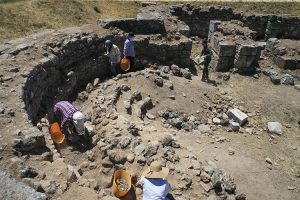
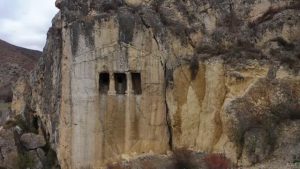
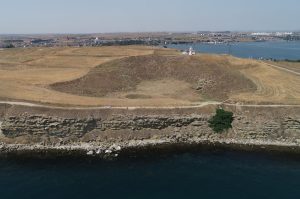
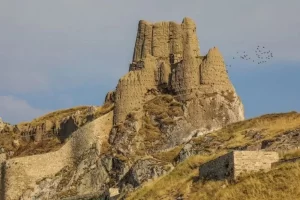



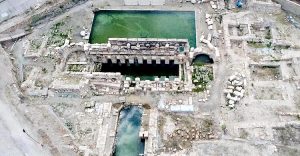
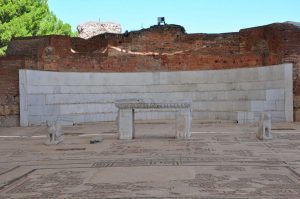
Leave a Reply